When war games evolved from World War Two to the modern day, they traded muddy trenches for sandy dunes and Nazis for Arabs. As industry veteran Ramzi* told me, “Arabs, particularly Muslims, have become the go-to terrorist trope within not just games, but general media.” *Ramzi’s name has been changed out of fear of backlash for speaking candidly on this issue.
“Most military shooter[s] nowadays either pit you against Arabs, Arab lookalikes, or Russians,” Ramzi continued. Since Call of Duty 4: Modern Warfare, the CoD series has done both, Battlefield 3 and 4 featured Arab enemies in the campaign, and CS:GO used traditional Arab clothing to denote terrorists—a shorthand many games use.
“These are some of the most played games on earth,” Ramzi said. “They desensitize people to the plight and deaths of Arabs and help build a narrative that most Arabs are evil without ever providing the context of what got some militant groups to where they are today.”
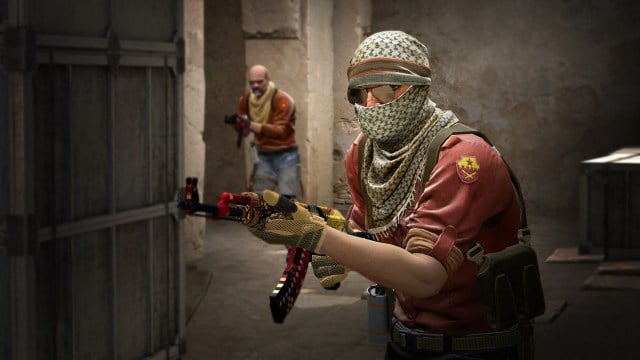
With the War on Terror, Arabs were the next big bad for the Western world to unite against. After 9/11, hate crimes against Muslims rose 1,617 percent in the United States, and a lot of our film, video game, and TV media mainly portrayed Arabs as terrorists; media such as CoD, Homeland, and The Hurt Locker are prime examples.
“Being exposed to these narrative lines and threads over and over builds an inherent bias in how you look at the real world,” Ramzi explained. Combine what we see in our fiction with the “clear bias in mainstream Western media,” and you get an insidiously planted seed that festers in people’s minds. It makes them believe all Arabs are terrorists and all those who support Arabs are terrorist sympathizers.
But what’s all this got to do with the video game industry?
“The industry has been complicit in establishing some of the biases we see in our world today,” Ramzi told me. Ramzi wants “better standards of representation within our narratives and games” and thinks developers should “approach the narrative design and inclusion of diverse characters, not just Arabs, but any other community, with intention and authenticity.
“Give me more happy Arabs, silly Arabs, serious Arabs, queer Arabs, sarcastic Arabs, and downright unlikable Arabs.”
I don’t love Assassin’s Creed’s Altaïr Ibn-LaʼAhad because he’s nice—he’s not, he’s a prick. I love him because he’s one of the first Arab characters I played who felt like a fleshed-out, complex person and not just an exotic stereotype.
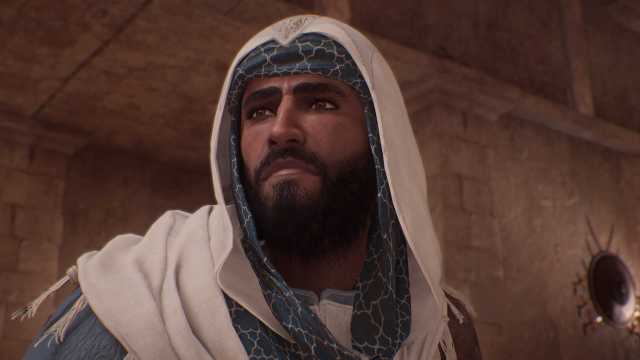
Years of Arabs being portrayed as exotic, mysterious, dangerous, and “Other,” in movies, history classes, on the news, and in video games have dehumanized us to such a degree that world leaders can now largely sit idly by as millions of innocent civilians are slaughtered in the Middle East.
Rather than condemn Israel’s recent escalation of the violence to two million innocent civilians and call for a de-escalation or ceasefire, U.K. Prime Minister Rishi Sunak and U.S. President Joe Biden initially simply stated Israel’s right to defend itself. Biden has since said Israel must conduct its war “in a manner consistent with international humanitarian law that prioritizes the protection of civilians,” and called for aid to be allowed into Gaza, but has still fallen short of calling for a ceasefire. The number of Palestinians killed since Oct. 7 is, at the time of writing, over 8,000—mostly women and children.
I’m a Jew and an Arab, and I am unreservedly pro-Palestine and stand opposed to Israel’s decades of settler colonialism in my name, as do many other Jews around the world. For their crime of being Palestinian, Israel shut off access to water, electricity, internet services, and fuel in Gaza, where Hamas is based. This is collective punishment, a war crime.
Nintendo, Microsoft, and Sony all shared support for the Black Lives Matter movement, and Bethesda, Bandai Namco, Sony, and Xbox boss (at the time) Phil Spencer all lent support to the Stop Asian Hate movement. But the bigger players in the industry have been silent when it comes to Israel’s genocide of Palestine.
Some indie companies and grassroots campaigns have been started, but nothing like we’ve seen for other causes. When it comes to supporting Palestine, “in offline chats you see that so many people want to be vocal about the support but fear for their job safety,” Ramzi disclosed.
It’s unsurprising these conversations are happening in private. Twitter is awash with anecdotes of people losing their jobs for being pro-Palestine. Even a Berkeley professor tried to get their students’ job prospects scuppered for protesting.
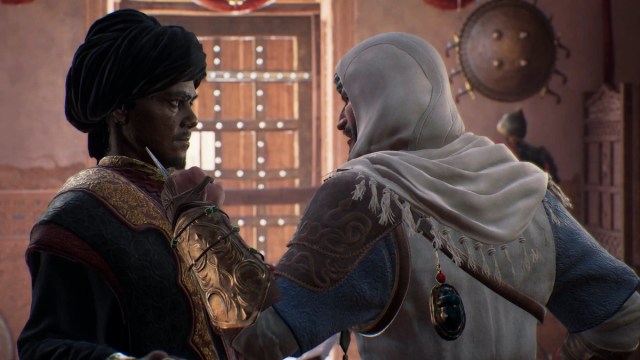
Aside from the immediacy of vocal and financial support, “the industry needs to normalize cultures that aren’t Western-focused,” former journalist Mourad El-Dine Abdou told me. Indies do this a lot, but most triple-A games have U.S. or Euro-centric settings and only use people of color as bad guys.
“A reason we’re othered so much is whenever we’re portrayed in media, it’s always very foreign,” Abdou continued. “If more games stopped portraying Arab countries [as] so different and just more accurately showed that life there is same as everywhere else, it helps to normalize us and will stop folks from having a warped perspective about how we live.”
Video games are not apolitical, nor are they created in a vacuum. They’re made by people who have political beliefs and unconscious biases. The industry needs to “have better recruitment and mentorship initiatives that would allow us to empower Arab, and other minority, storytellers,” said Ramzi.
On Thursday, Oct. 5, Assassin’s Creed Mirage launched, a triple-A video game with an Arab protagonist and a full Arabic dub set in 9th-century Baghdad. It was a wonderful thing to behold. Unfortunately, the joy Arab gamers felt at the nuanced representation would be short-lived, as on Saturday, Oct. 7, Israel announced a siege of Gaza in response to a Hamas attack.
Hamas’ attack, a response to decades of apartheid and settler colonialism, killed hundreds of Israeli civilians, and thousands of Palestinian civilians have been killed by retaliatory Israeli air strikes in the weeks following. The Western response has been inhumane and callous, and the video game industry needs to reckon with the part it played in creating the culture that encouraged that response.
Until then: End the siege. End the occupation. End the settler colonialism. Free Palestine. Free Palestine. Free Palestine.



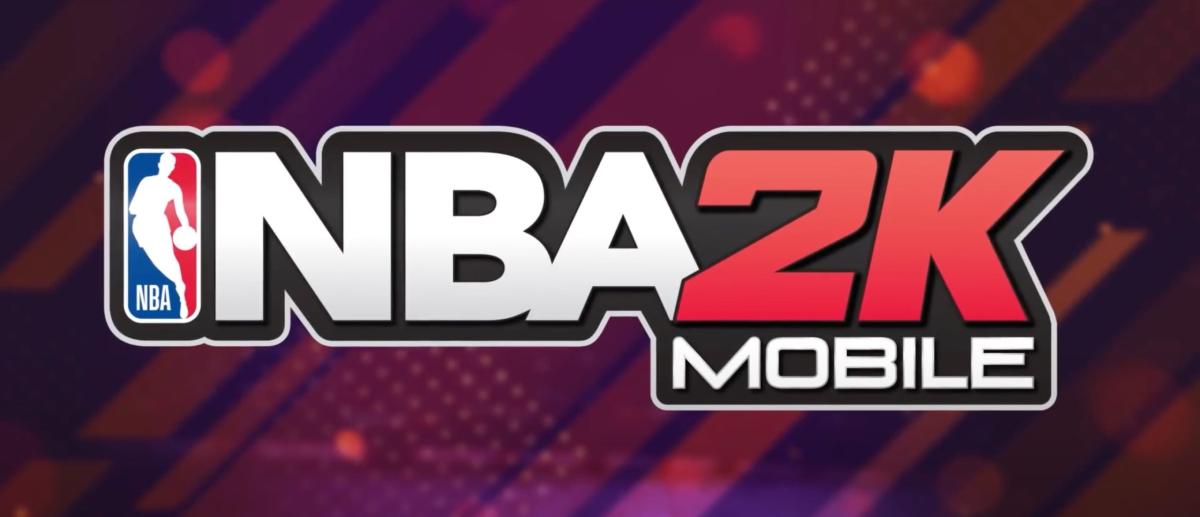
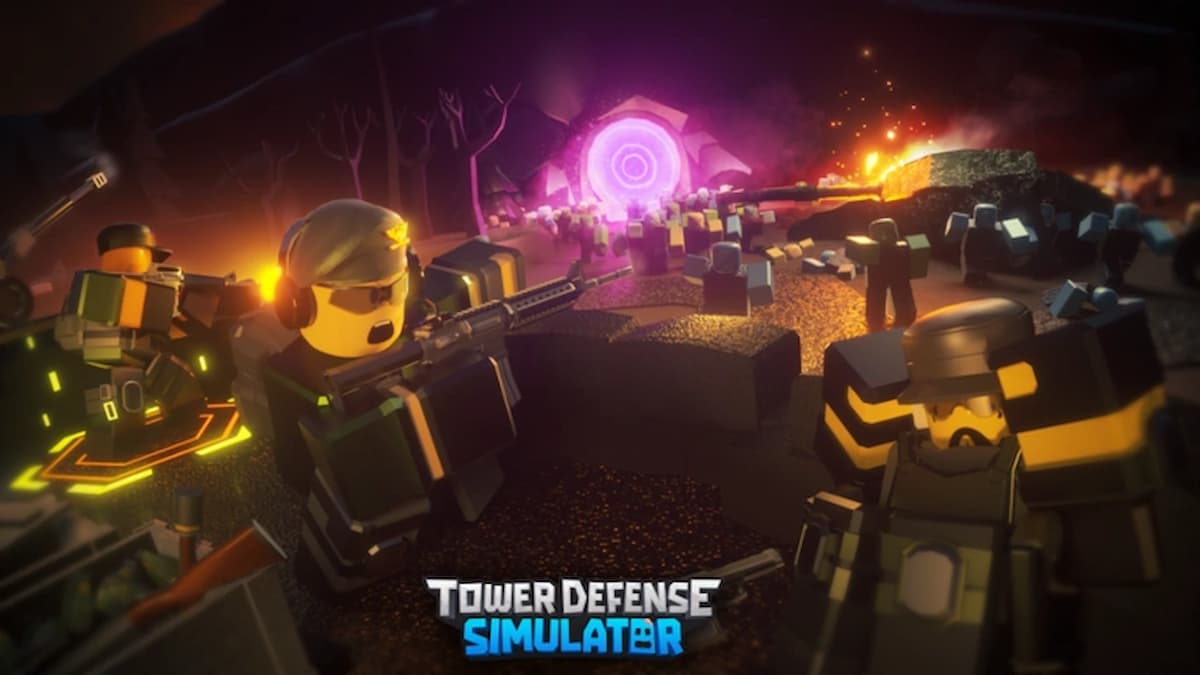
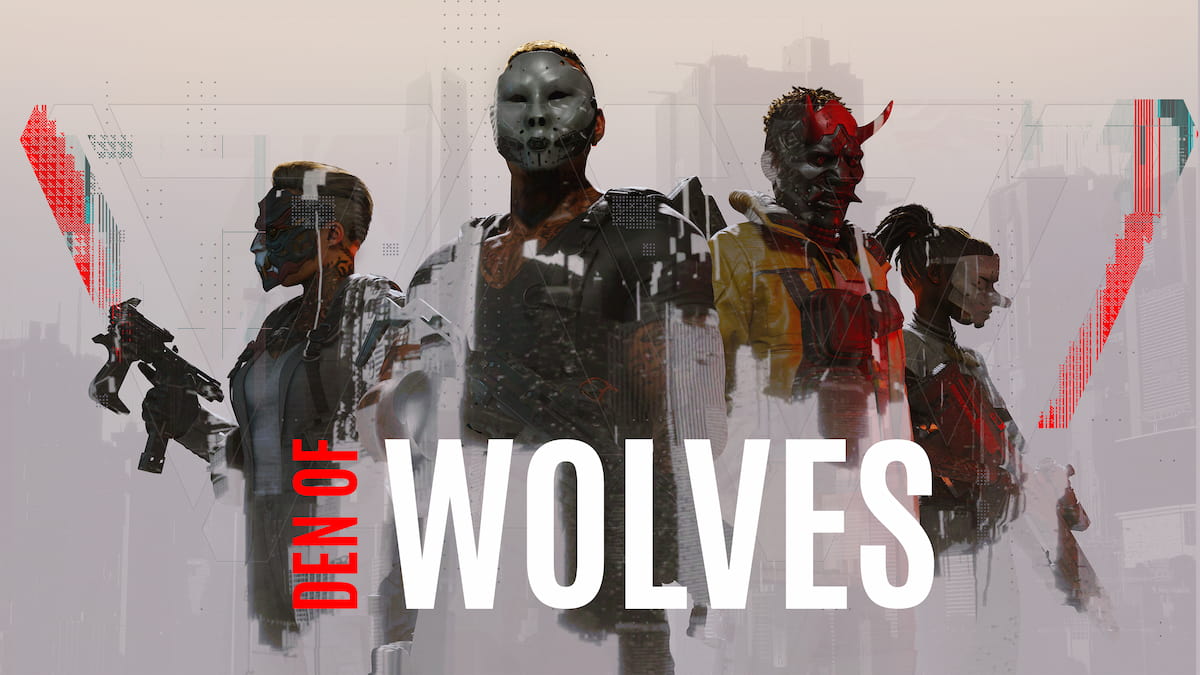
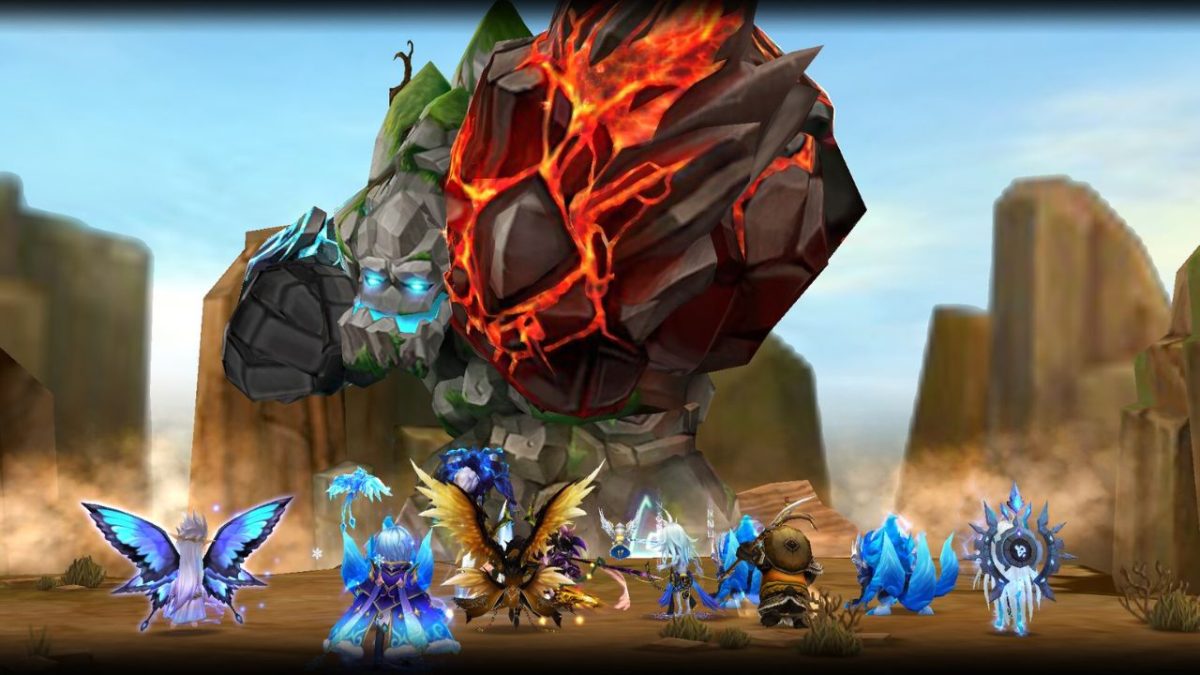


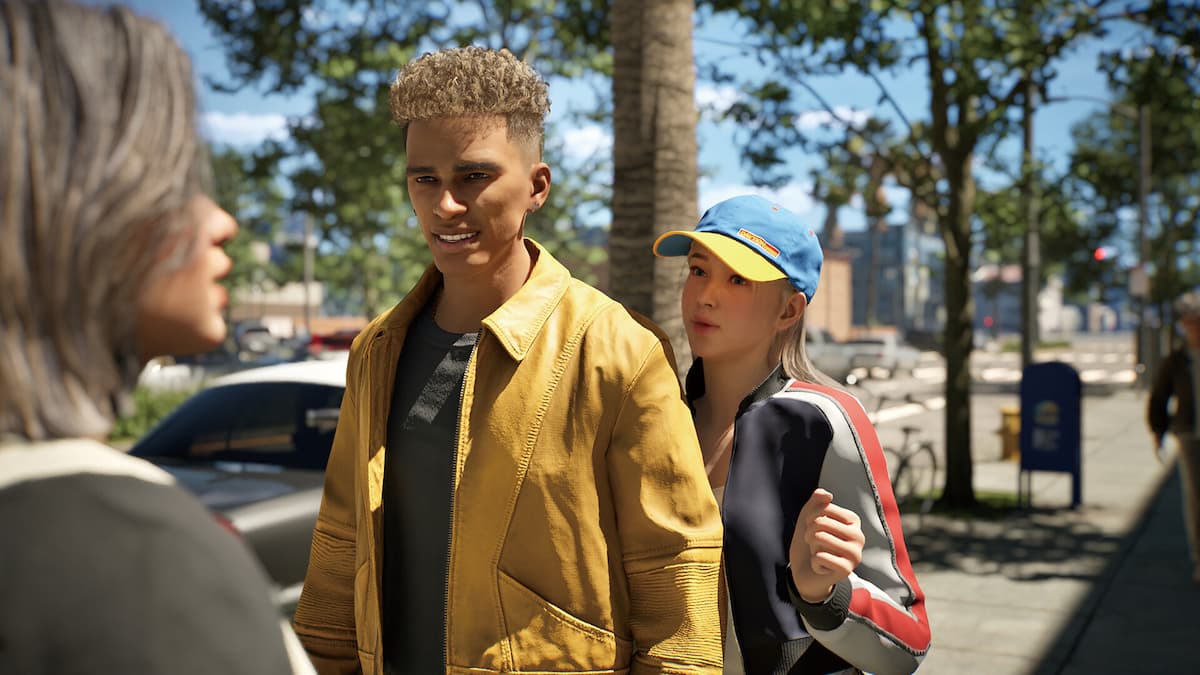
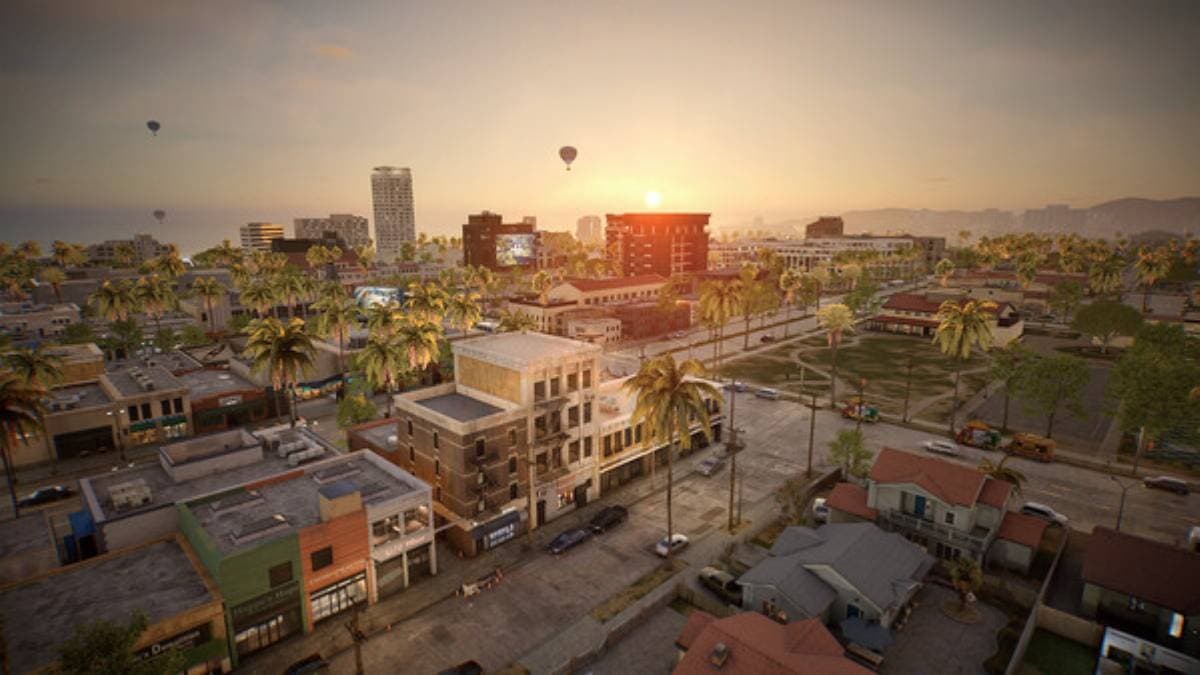


Published: Nov 2, 2023 09:55 am